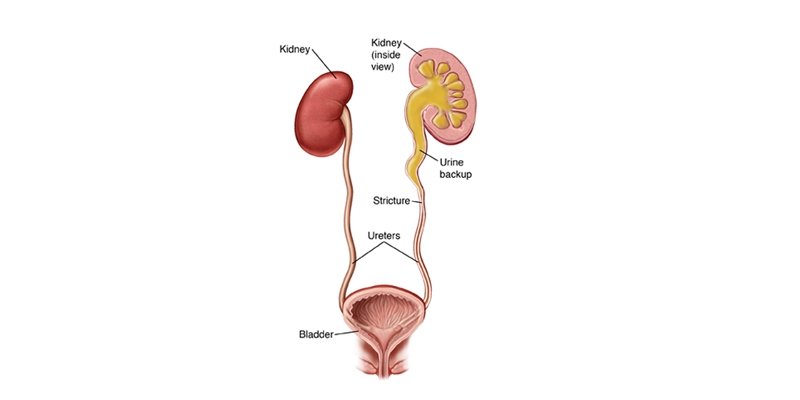Ureteric stones, also known as ureteral stones, are hard masses formed from crystals in the urine that lodge in the ureters, the tubes that carry urine from the kidneys to the bladder. If these stones are not treated right away, they may cause excruciating pain and other problems. For residents of Kaushambi and the surrounding areas, effective ureteric stone treatment is essential to alleviate pain and prevent further health issues. Ureteric Stone Treatment in Kaushambi offers a range of options tailored to individual needs. This guide provides an in-depth look at ureteric stone treatment options available in Kaushambi, their symptoms, causes, and preventive measures.
Symptoms of Ureteric Stones
Ureteric stones can present a range of symptoms, including:
- Severe Pain: Often described as sharp, cramping pain in the back and side, the pain can radiate to the lower abdomen and groin.
- Hematuria: Blood in the pee, which may show up as brown, red, or pink.
- Frequent Urination: A persistent need to urinate, even if only a small amount comes out.
- Nausea and Vomiting: Often accompanying severe pain.
- Fever and Chills: Indicating an infection, which requires immediate medical attention.
If you experience any of these symptoms, seeking prompt medical attention in Kaushambi is crucial.
Causes of Ureteric Stones
It can be helpful to prevent ureteric stones by being aware of their causes. Common causes include:
- Dehydration: Insufficient water intake leads to concentrated urine, which can facilitate stone formation.
- Diet: Consuming large amounts of sugar, protein, and sodium can raise the risk.
- Medical Conditions: Conditions like hyperparathyroidism, gout, and urinary tract infections can predispose individuals to stone formation.
- Family History: Genetics play a role; if someone in your family has had stones, you are at higher risk.
- Obesity: A high body mass index (BMI) is linked to stone formation.
Diagnostic Procedures
Accurate diagnosis is key to effective treatment. In Kaushambi, several diagnostic tools are available:
- Imaging Tests: CT scans, X-rays, and ultrasounds help visualize the stones.
- Blood Tests: These can identify high levels of certain chemicals that may cause stones.
- Urine Tests: 24-hour urine collection can help determine the underlying cause of stone formation.
Treatment Options in Kaushambi
Kaushambi offers a range of treatment options for ureteric stones, tailored to the size, type, and location of the stone, as well as the patient’s overall health.
- Conservative Management
Small stones that are likely to pass on their own may be managed with:
- Hydration: Drinking plenty of fluids to help flush the stone out.
- Pain Relief: Over-the-counter pain medications like ibuprofen or prescribed medications to manage pain.
- Medical Therapy: Medications such as alpha-blockers can relax the muscles in the ureter, facilitating the passage of stones.
- Extracorporeal Shock Wave Lithotripsy (ESWL)
Shock waves are used in this non-invasive method to break up stones into smaller pieces that move more easily through the urine. ESWL is suitable for stones located in the kidney or upper ureter. - Ureteroscopy
A minimally invasive procedure where a small scope is inserted through the urethra and bladder into the ureter. The stone is either removed with a small basket or broken into smaller pieces using a laser. - Percutaneous Nephrolithotomy (PCNL)
For larger or more complex stones, PCNL is recommended. This involves making a small incision in the back to access the kidney and remove the stone directly. - Open Surgery
In rare cases where other treatments are not effective, open surgery may be necessary to remove the stone. - Medical Expulsive Therapy
Medications like calcium channel blockers or alpha-blockers can help relax the ureter muscles, making it easier for stones to pass.
Post-Treatment Care
Post-treatment care is essential to ensure complete recovery and prevent recurrence. This includes:
- Hydration: Drink at least 2-3 liters of water daily.
- Dietary Changes: Reduce salt, protein, and oxalate-rich foods like spinach and nuts.
- Medications: Follow the prescribed medications to manage pain and prevent infection.
- Follow-Up Appointments: Regular check-ups to monitor kidney function and ensure no new stones are forming.
Preventive Measures
Preventing ureteric stones involves lifestyle and dietary changes:
- Stay Hydrated: Drinking plenty of fluids dilutes the substances in urine that lead to stones.
- Diet Management: Limit intake of salt, protein, and foods high in oxalates. Include more fruits and vegetables in your diet.
- Healthy Weight: By food and activity, keep your weight within a healthy range.
- Medication Adherence: If you have a medical condition that predisposes you to stones, take prescribed medications regularly.
Choosing the Right Healthcare Provider
Choosing the right healthcare provider in Kaushambi is crucial for effective ureteric stone treatment. Look for urologists with:
- Experience: Years of practice and a good track record in treating ureteric stones.
- Advanced Technology: Access to the latest diagnostic and treatment technologies.
- Patient Reviews: Positive feedback from patients can indicate a reliable and compassionate healthcare provider.
At Dr. Aggarwal’s Urology Clinic in Kaushambi, we offer comprehensive ureteric stone treatment with state-of-the-art facilities and experienced medical professionals. Our approach is patient-centered, ensuring personalized care and effective treatment outcomes.
Conclusion
Ureteric stones can cause significant discomfort and complications if not addressed promptly. With a range of treatment options available in Kaushambi, patients can find relief and return to their normal lives. By understanding the symptoms, causes, and treatments, as well as adopting preventive measures, you can effectively manage and prevent ureteric stones. Ureteric Stone Treatment in Kaushambi at Dr. Aggarwal’s Urology Clinic ensures comprehensive and personalized care for every patient. We are committed to providing the best care for our patients, ensuring their health and well-being.
To learn more about Urology visit draggarwalsurology.com or also follow us on LinkedIn


